Introduction
In today’s world, many of us have busy schedules that often push sleep to the bottom of the priority list. With work, school, social events, or even endless to-do lists, sleep might seem like something we can sacrifice.
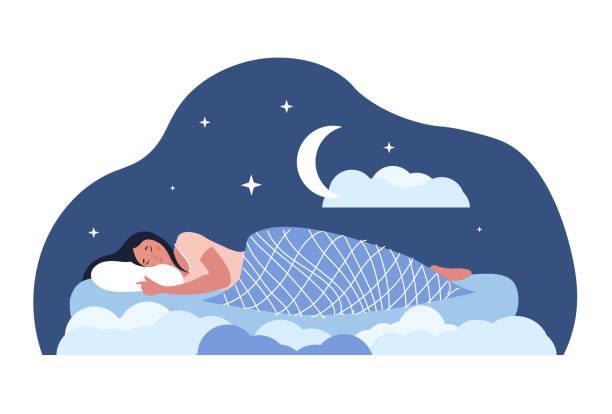
However, recent research has shown just how important sleep is for not only our physical health but also for our mental well-being and cognitive abilities. Sleep is directly linked to how we think, feel, and process emotions, and a lack of quality sleep can have serious effects on our mental health.
Read More- Mental Health
What Happens When You Sleep?
Sleep isn’t just about resting; it’s an active process that helps your body and mind recharge. While you sleep, your brain goes through different stages, each serving a specific purpose. The two main stages of sleep are-
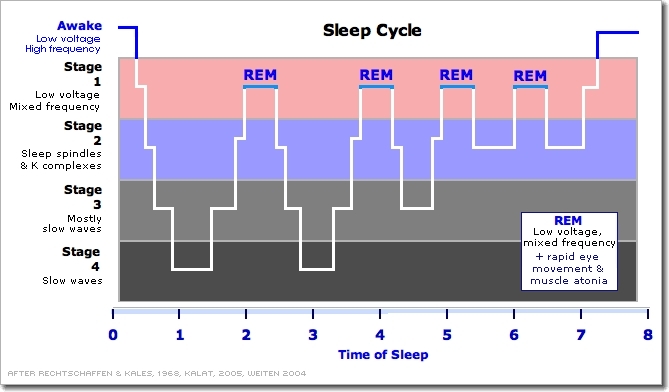
- Non-Rapid Eye Movement (NREM) Sleep- This is the deep sleep stage, where your body restores itself. During this time, your brain works on consolidating memories—turning short-term memories into long-term ones—and helps clear out waste products that build up in the brain during the day.
- Rapid Eye Movement (REM) Sleep- This stage is linked to dreaming and emotional processing. REM sleep plays an important role in helping you regulate your emotions, solve problems, and be creative.
Both types of sleep are essential for feeling rested, focused, and emotionally balanced.
How Sleep Affects Your Mental Health
Sleep is important for health, here are some ways sleep affects your mental health-
1. Sleep and Your Mood
When you don’t get enough sleep, it can have a big impact on your mood. You may feel irritable, anxious, or even depressed. Here’s why-
- Lack of Sleep and Depression- Research shows that not getting enough sleep can increase the risk of developing depression. When you don’t sleep well, it can make it harder for your brain to process emotions properly, which can lead to feelings of sadness or hopelessness. Also, if you already have depression, sleep problems often make the symptoms worse.
- Sleep and Anxiety- People with anxiety disorders often have trouble sleeping. They may feel restless or wake up in the middle of the night with their mind racing. Lack of sleep also makes it harder for the brain to manage stress, making anxiety even worse.
Improving your sleep can help with managing mood swings, stress, and anxiety, which is why getting enough rest is such a key part of mental health care.
2. Sleep and Cognitive Function
Sleep doesn’t just affect how we feel emotionally; it also affects how we think. Sleep plays a huge role in memory, attention, and learning-
- Memory and Learning- When you sleep, your brain organizes and stores memories from the day. If you don’t get enough sleep, it can be harder to remember things or learn new information. This is why sleep is so important for students or anyone who needs to retain new information.
- Attention and Focus- When you’re tired, your ability to concentrate or focus on tasks decreases. You might find it harder to make decisions, follow conversations, or even complete simple tasks. Lack of sleep can affect the way your brain processes information, leading to slower thinking and more mistakes.
- Problem-Solving and Creativity- Sleep also helps with creativity. It’s during REM sleep that your brain makes connections between ideas and comes up with creative solutions. So if you’ve ever woken up with a great idea or solution to a problem, that’s thanks to your brain working on it while you sleep!
What Happens When You Don’t Get Enough Sleep?
Chronic sleep deprivation—or consistently getting too little sleep—can lead to a range of mental health problems-
- Increased Stress- When you don’t sleep enough, your body produces more of the stress hormone cortisol. This can lead to increased anxiety and make it harder to cope with stressful situations.
- Mood Disorders- People who don’t get enough sleep are more likely to develop mood disorders, such as depression or anxiety. Lack of sleep can make it harder for your brain to regulate emotions, leading to mood swings or feelings of irritability.
- Cognitive Decline- Over time, not getting enough sleep can affect your brain’s ability to think clearly and remember things. In the long run, chronic sleep problems can even increase the risk of conditions like dementia or Alzheimer’s disease.
How Can Good Sleep Help You Feel Better?
Adopting healthy sleep habits can make a big difference in your mental health. Here are a few tips to help you get better rest-
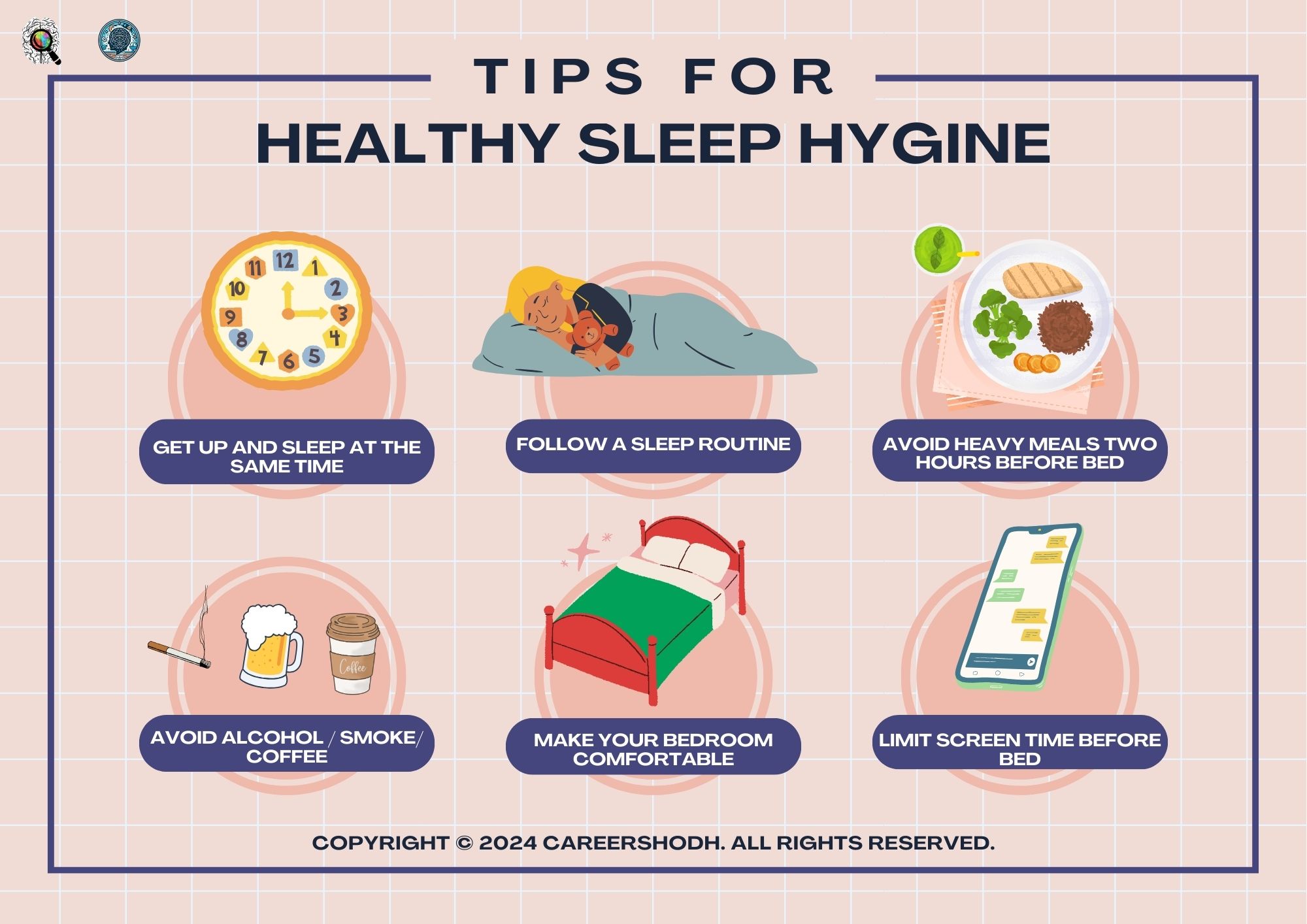
- Stick to a Sleep Schedule- Going to bed and waking up at the same time each day helps set your body’s internal clock, making it easier to fall asleep and wake up.
- Create a Relaxing Bedtime Routine- Take some time to unwind before bed by reading, meditating, or taking a warm bath. Avoid screen time, as the blue light from phones and computers can make it harder to fall asleep.
- Make Your Bedroom Comfortable- Keep your bedroom cool, dark, and quiet to create an environment that promotes restful sleep.
- Avoid Caffeine and Alcohol Before Bed- Both caffeine and alcohol can interfere with sleep quality. Try to avoid them in the hours leading up to bedtime.
- Exercise Regularly- Physical activity during the day can help you sleep better at night. However, avoid exercising too close to bedtime, as it can make falling asleep more difficult.
Conclusion
Getting enough sleep is not just about feeling rested—it’s about taking care of your mind and emotions. Sleep helps your brain stay sharp, your mood stay balanced, and your body stay healthy. On the other hand, lack of sleep can lead to increased stress, difficulty concentrating, and even mood disorders like depression and anxiety. By making sleep a priority, you’re investing in your mental health and well-being. So, the next time you’re tempted to skip sleep, remember that your brain and emotions need rest just as much as your body does.
References
Harvard Medical School. (2022). Sleep and mental health. Retrieved from https://www.health.harvard.edu
Killgore, W. D. S. (2010). Sleep deprivation and cognitive performance. Sleep Medicine Clinics, 5(2), 157-168.
Morin, C. M. (2007). Insomnia: Psychological assessment and management. Guilford Press.
Walker, M. P. (2017). Why We Sleep: Unlocking the Power of Sleep and Dreams. Scribner.
Subscribe to PsychUniverse
Get the latest updates and insights.
Join 3,044 other subscribers!
Niwlikar, B. A. (2025, February 1). Sleep and Mental Health- 5 Ways to Get Quality Sleep. PsychUniverse. https://psychuniverse.com/sleep-and-mental-health/

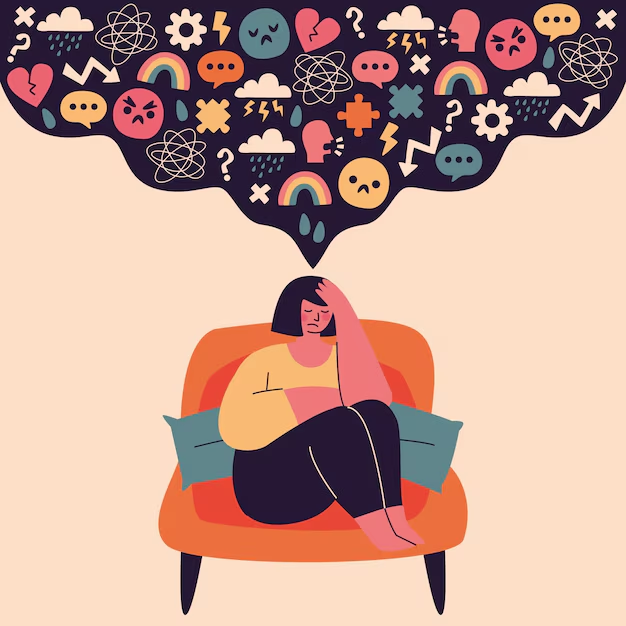
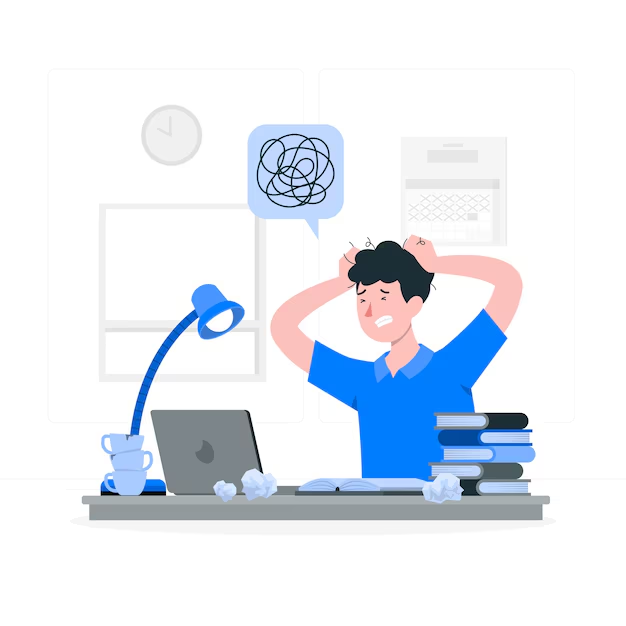
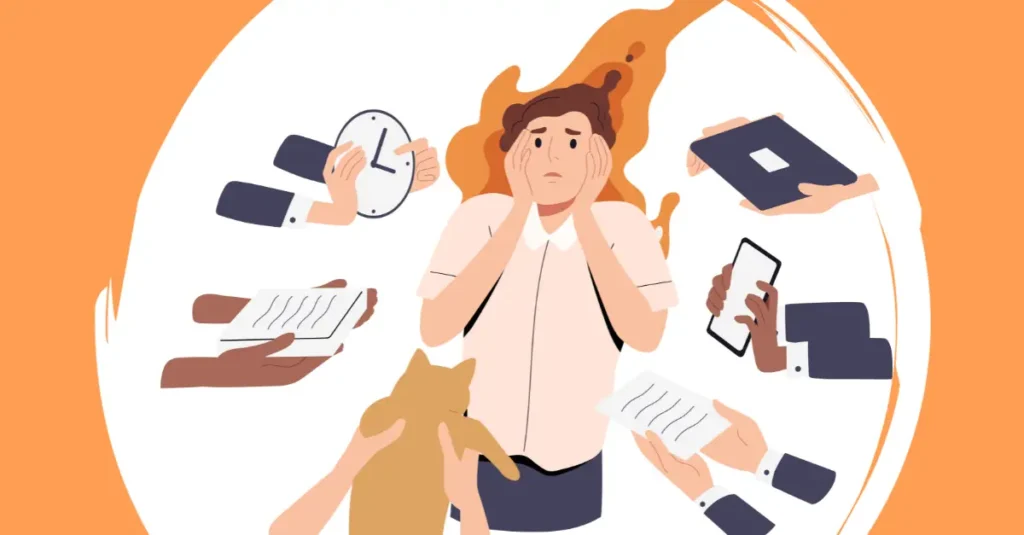
Pingback: What is Emotional Hijacking and 7 Important Ways to Prevent It - PsychUniverse
Pingback: Digital Detox and Its 4 Important Positive Effects - PsychUniverse
Pingback: Neurodiversity and 3 Important Ways to Take a Strengths-Based Approach to It - PsychUniverse
Pingback: Ramadan & Mental Well-being- 4 Powerful Ways Fasting Transforms Your Mind - PsychUniverse
Pingback: 5 Game-Changing Habits to Supercharge Your Cognitive Fitness - PsychUniverse
Pingback: 6 Eye-Opening Signs of Digital Narcissism You Need to Know - PsychUniverse
Pingback: Minds at Peace: 6 Psychological Pathways to Reconciliation in the India-Pakistan Conflict - PsychUniverse
Pingback: Brain Fog: What It Is, 5 Important Reasons Why It Happens, and How to Clear It - PsychUniverse
Pingback: How Heuristics Shape Everyday Reality and 4 Important Ways to Outsmart Them - PsychUniverse
Pingback: What is Parentification and 5 Important Negative Outcomes of It - PsychUniverse
Pingback: Emotional Granularity and 2 Important Reasons Why It Matters - PsychUniverse
Pingback: The Psychology of Inner Narrator Voices and 4 Important Variations in It - PsychUniverse
Pingback: Future Fatigue and 3 Important Ways to Cope With It - PsychUniverse
Pingback: Why Teenagers Take Risks and 4 Important Supporting Healthy Decision-Making - PsychUniverse
Pingback: Micro-Decision Overload: 9 Hidden Ways It Drains Focus - PsychUniverse
Pingback: The Divided Self: A Powerful Guide to Sanity and Madnes - PsychUniverse
Pingback: Loneliness in a Hyperconnected World - PsychUniverse
Pingback: Inherited Trauma: 3 Powerful Ways Trauma Shapes Us - PsychUniverse
Pingback: Burnout vs. Depression: 5 Important Difference Between Them - PsychUniverse